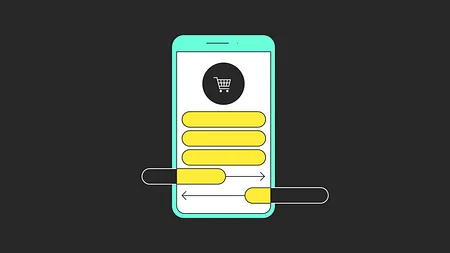Our 2019 fintech predictions
It’s been an incredible year for fintech, but one thing’s for sure. 2019 is going to be an even wilder ride.
Open Banking...part deux
Open banking and PSD2 have been underwhelming in terms of impact in 2018 and that’s likely to continue over to 2019. The banks are only just starting to properly open themselves out. The challenger brands like Revolut, Monzo and N26 have the ability to completely allow for Open Banking built into their systems. So there’s a real possibility that within a retail and business context challengers may end up leading the way and leave the incumbents lagging behind.
The Empire is Striking Back
Incumbent banks will still be wondering how to become compliant with regulation, whilst challengers are already able to be compliant. Fintechs will focus on maximising the opportunities that come with it and enter markets faster.
Fintech has clearly started to lead the way in terms of what the landscape is trying to do. We've already seen big organisations copying the smaller fintechs. Barclaycard copying in-app card freezing and now building on gambling blocks that were pioneered by Monzo and Starling.
We've seen the bar continuously raised on what you can do with a truly digital proposition, what Marcus has done, and what we're doing with Mettle, is an indication that incumbents are waking up to the fact that it isn't what you do, it's the way that you do it.
There’ll still be more copycatting of fintechs by big banks - possibly to incumbents detriment if they don’t get their technology sorted out and if they don’t think more carefully about how they roll out features.
The fun thing is that the move from banks thinking in terms of projects, to now thinking holistically about businesses, it’s a good place to be. We'll see banks adopting the thinking, and propositions, of fintechs increasingly over the next year.
Culture has finally started to shift in 2018. Banks have realised that they need to change and are changing. It’s a shift that will continue over in 2019 but there’s a lot to change.
Fintechs have changed how ‘change’ happens in financial services. Mettle can push 70 production releases in a week if needs be - incumbents are no longer able to pretend that rate of production speed only lies with GAFA.
I’m fully expecting a trend towards truly forward-looking banking that seeks to solve customer issues through integrated solutions. Customers won’t even notice when they’re interacting with their bank most of the time. It’ll happen because customers don’t want to spend their time inside a banking app unless absolutely necessary. Solutions that are built into third-party apps are going to increase the underlying complexity for incumbents and fintechs but will improve customer experiences.
The GAFA side shadow
Google Amazon Facebook Apple (GAFA) is moving into the space more and more (Amazon x AMEX, Google x Tez) they’re walking behind FIs and are a looming threat that cannot be ignored. At the moment the only thing holding GAFA back is regulation and the complexities associated with it.
That may be enough to hold them back for another year, but it’s likely that GAFA will work to increase partnerships and slowly take over my space in the financial landscape. Though nobody has come out to go "we've done a thing", this year has seen many tech giants dipping their toes into the space.
Apple is becoming a platform for distribution when it comes to payment capabilities, but on the Amazon Web Services side, I see a lot of opportunity for those guys. Something like 85% of fintech is based on AWS, so it will be interesting to see them also move up through the ranks.
USA all the way
The USA is seeing some progression in fintech through initiatives such as Marcus but is held back by its fractured regulatory system. Without unified regulations, it makes it all but impossible for fintechs to compete in the USA without proving themselves elsewhere first. Scalable Capital and Nutmeg are moving into the Americas and making a financial services play while moving through the USA state-by-state. But they can only do that because they have a strong foundation in the UK. Fintech opportunities in the USA will be minimised as long as small companies have to deal with 50 different sets of broad regulations, covering everything from taxes to employment to healthcare. Marcus is able to gain success because of the backing from Goldman Sachs if it had started off as an isolated unit it’s anyone’s guess how well it would have performed.
SMBs get some real love
We're going to see integrated experiences and truly forward-thinking finances for SMB's, where you can manage your cash flow, business and your invoices all from one place. The SMB space is going to get more complex, as the size of any SMB's increases and the individual needs evolve, the product offerings themselves have to match it. So far that hasn’t happened. But looking at the roadmap that we have for Mettle, it’s going to be an interesting challenge. There is a much narrower window to get propositions wrong when we're talking about making businesses more successful. This is a fundamental driver for the British economy, and with everything happening around Brexit, we need as much help as we can get.
So who’s the winner?
Fintechs are evolving at unequal rates. Monzo, Starling and Revolut are breaking away from the rest of the peloton and surging ahead. Partially due to the culture they have, but can they keep the pace up? Hypergrowth only lasts so long.
On the other hand, incumbents are likely to be wary at the prospect of making any big changes to their underlying architecture. The ghost of TSB’s actions this year is going to linger over any discussion on changing banking systems for a long time to come. It’d be surprising if any bank makes a big bang change in 2019. And they shouldn’t.
It took First Direct 25 years to get 1 million customers - Monzo achieved that in less than 3. The best thing any of the fintech banks can do is keep acquiring customers. If they can increase customer acquisition and retention then that’ll keep them ahead of the competition.
But, for the first time in a very long time, customers are going to be the overall winners of the year. Increasing competition amongst the incumbents and challengers will only be good news for customers who have been underserved and had products underdeliver for too long.
2019 is the year for customers to finally get the products that can solve their jobs to be done properly.




